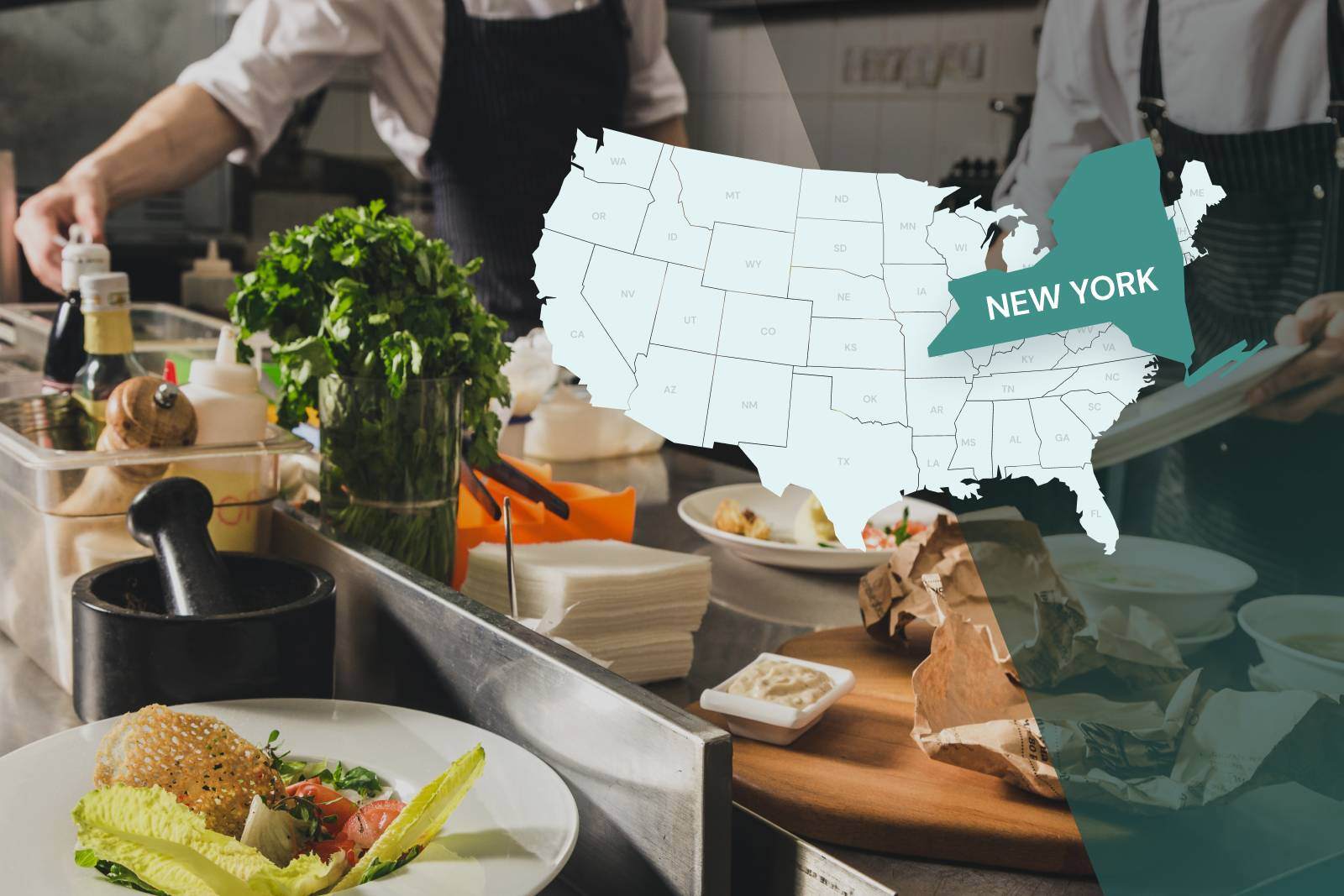New York State maintains specific food safety training and certification regulations like many other states. Certain counties and cities, like Westchester County and New York City, have adopted even more specific requirements.
The variation in regulations can be confusing if you work in the Empire State’s foodservice industry. Read on to learn what you need to know about food safety training to succeed in your career.
In this blog, we’ll cover:
Which version of the FDA Food Code does New York use?
Does New York require food handler training?
Does New York require food allergy training?
Does New York require food manager certification?
What are the food safety training requirements in New York City?
Which version of the FDA Food Code does New York use?
The U.S. Food and Drug Administration (FDA) encourages all jurisdictions to adopt the most current version of the FDA Food Code. However, it cannot force a state or agency to take action. Two state agencies oversee restaurants and other food establishments in New York.
The first is the New York State Department of Health, which has not integrated any version of the FDA Food Code into its regulations. In contrast, the second, the New York State Department of Agriculture and Markets, utilizes the long form of the 2001 FDA Food Code.1
When a state has multiple agencies adopting different regulations, the FDA mandates that the most up-to-date version is the edition adopted by the state. Therefore, New York State follows the 2001 FDA Food Code.2
That said, stay tuned. Officials expect the entire state to adopt the 2022 FDA Food Code within the next year or two.
But let’s not get ahead of ourselves! Read on to learn what the requirements for training and certification are today.
Does New York require food handler training?
No, New York State does not require food handler training.
The term ‘food handler’ does not appear in the 2001 FDA Food Code. Regulations speak to proper food handling but not training for food handlers.
Similarly, New York regulations suggest staff training programs but do not require them.3
Does New York require food allergy training?
No, food allergy training is not required for food handlers in restaurants and food establishments in New York. However, there are exceptions.
In November 2022, Westchester County passed the Food Allergy Restaurant Safety Law, which requires every establishment to have someone on staff who has completed food allergen awareness training on-premises during all hours of operation.4
The county lists several acceptable training programs but also states that if you wish to receive training from another program, simply contact the Westchester County Department of Health.
While restaurants and food establishments do not require allergen awareness training, the Division of Child Care Services does require schools and childcare facilities to develop allergen protocols and ensure personnel have allergen training.5,6
Does New York require food manager certification?
Food safety education certification is only required for “certain retail food stores that prepare food on the premises,” specifically retail food stores that either apply for or hold a food processing establishment license.”7
Each establishment must have one individual in a management position who has completed an approved food safety education program. This individual cannot work at more than one establishment. These credentials may be valid for two or five years, depending on the program.
Establishments applying for a license or hoping to maintain it have 30 days to ensure the assigned person has completed an approved food safety education program.
These food safety education requirements specifically apply to businesses that sell food and food products to customers for off-premises consumption–meaning managers at establishments such as restaurants and cafes do not currently need food protection manager certification.
What are the food safety training requirements in New York City?
Eight million people live in New York City, and 25,000 restaurants help serve them.8 With so many mouths to feed, it makes sense that the Big Apple has its own health code, overseen by NYC Health.
The NYC Health Code does not require food handler or allergen awareness training. However, there are training requirements for supervisors.
Foodservice and non-retail food processing establishments must have at least one supervisor certified in food protection on-premises during all hours of operation.
NYC Health oversees the only approved course. Managers can take it online for free or sign up for an in-person class for $114. If you take the course online, you must schedule an in-person final exam and pay a fee of $24.50 to secure your seat.
These credentials never expire as long as you continue to work in New York City.9
The Takeaway
New York is an excellent example of how a state and its local agencies can use federal guidelines to inform their food safety requirements and then further refine their specific requirements.
Navigating the food safety regulations in New York can be challenging. However, understanding the statewide regulations and the local guidance of jurisdictions such as Westchester County and New York City can help you ensure compliance and maintain the highest food safety standards in your establishment.
Sources





.png)

.png)
